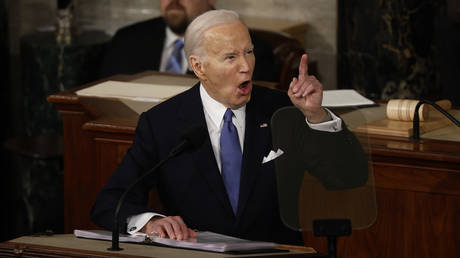ARTICLE AD BOX
Russia’s envoy urged the organization to force Kiev to abide by international rules
The obvious lack of a reaction to Ukrainian attacks on Russian cities demonstrated by the Organization for Security and Co-operation in Europe (OSCE) has encouraged Kiev to keep killing civilians, Moscow’s representative at the organization Alexander Lukashevich stated on Monday.
The comments came as Ukraine intensified its attacks on Russia’s border regions last week ahead of the country’s presidential election, which took place Friday through Sunday. The attacks involved drone raids, artillery strikes and attempted ground incursions. The assaults on Russia’s Belgorod Region alone have claimed the lives of 11 civilians, including children; 82 more were injured, according to the local health authorities.
“The OSCE leadership is once again demonstrating biased approaches, continuing to divide people into categories and sorts and blatantly ‘not noticing’ the victims of attacks carried out by the armed formations of the Kiev regime against peaceful residents of the Russian regions,” Lukashevich said in a statement posted on the official Telegram channel of the Russian mission.
The official highlighted that the OSCE leaders had offered nothing but “politicized statements” to back Kiev’s criminal regime, accusing the organization of demonstrating hypocrisy that “goes beyond all possible boundaries.”
Lukashevich also urged OSCE Chairperson-in-Office Ian Borg and Secretary General Helga Schmid to immediately condemn the intense, indiscriminate shelling of Russian cities by Ukrainian militant groups.
READ MORE: OSCE violating its mandate – Moscow
According to the envoy, the organization must call on the Ukrainian authorities and their sponsors from NATO to stop killing civilians, and immediately choose a political and diplomatic path to resolve existing tensions instead.
“Silence and inaction by the OSCE leadership now will mean not only encouragement of attacks by the Kiev regime against the civilians of the Russian Federation, but also its personal responsibility for further armed escalation,” the diplomat concluded.
.png)
 8 months ago
4
8 months ago
4








 English (US)
English (US)